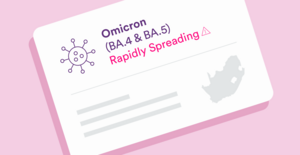Key points
- Aspirin can limit the damage during a heart attack by reducing blood clotting and maintaining oxygen flow to the heart.
- Aspirin therapy reduces the clotting action of platelets, which can be beneficial during a heart attack.
- It's important to consult a doctor before starting aspirin therapy due to potential side effects and interactions.
- Possible side effects of aspirin include stomach upset, nausea, ulcers, and stomach bleeding.
- While a daily aspirin regimen might be beneficial for those at high risk of a heart attack or stroke, it can also cause side effects such as stomach upset, nausea, stomach ulcers, and stomach bleeding, particularly in individuals over the age of 60.

A heart attack is not something that starts and ends in 5 minutes, it is an ongoing event. The damage to your heart as well as body can be limited by taking action the minute the heart attack begins. The first thing you need to do is call 911 for help. Then you want to take an aspirin.
How Aspirin Helps During a Heart Attack
The clotting action with the platelets is reduced by aspirin therapy. This clumping action is useful if say you have a cut since it stops the bleeding, however if it blocks an artery which is already narrow due to atherosclerosis, it could clot. The blood clot goes on to block up an artery and blood flow is kept reaching the brain or heart, a heart attack or stroke can be the result.
During a heart attack, your blood clotting is not what you want. Plague rupture in the coronary artery is what causes heart attacks. Once this rupture happens, the body thinks there is an injury and calls upon platelets. The platelets go to work triggering a blood clot, similar to cutting a finger. As the minutes tick by, the clot gets bigger. It continues to get larger unit the artery is completely blocked. Blood no longer flows to the area of the heart that the artery is serving.
Oxygen is no longer being carried to the heart by the blood. Without oxygen, this area of the heart starts to die. This is when a heart attack begins. If you take an aspirin during these few first minutes, you will actually slow down the platelets making it more difficult for blood clotting. You help to keep the blood flowing, which is bringing the necessary oxygen to the heart. By taking aspirin you will reduce the chances of damage happening from the heart attack.
Just like you would for any other type of medication, be sure you ask your doctor prior to starting aspirin therapy. There are many different types of medication that you can buy over the counter that is useful in life. The aspirin, when taken once a day without your doctor's consent may cause a clotting disorder or bleeding, ulcers, asthma or heart failure. It is not advised by doctors for women over 60 or men over 50 who have diabetes to take a daily low dose aspirin.
Possible Side Effects of Aspirin
If you have never had a stroke or heart attack but are at a
high risk of getting one, you might benefit from a daily aspirin regimen. However,
talk with your doctor or nurse practitioner first to be sure it is safe for you. Although researchers have noted that aspirin is safe to use
as directed, they could cause some side effects, as with any medication. Some
side effects may include stomach upset, nausea, stomach ulcers, and stomach
bleeding. There is little warning to stomach bleeding, and it may cause death.
If you are over the age of 60, you might end up being more sensitive to side
effects presented by aspirin. If you experience any side of effects of medication, find urgent care or call 911 immediately.
FAQs
Can aspirin help during a heart attack?
Yes, aspirin can help during a heart attack by reducing blood clotting and ensuring oxygen flow to the heart.
How does aspirin work in the event of a heart attack?
Aspirin reduces the clotting action of platelets, which can prevent the artery blockages that cause heart attacks.
Should I start taking aspirin daily to prevent heart attacks?
Before starting any medication regimen, including aspirin, it's crucial to consult with a healthcare professional due to potential side effects and interactions.
What are the potential side effects of taking aspirin?
Aspirin can cause stomach upset, nausea, ulcers, and stomach bleeding. It's important to seek immediate medical attention if you experience these side effects.
Is aspirin therapy recommended for everyone?
No, aspirin therapy is not recommended for everyone. It's not advised for women over 60 or men over 50 with diabetes to take a daily low dose of aspirin.
Who is advised not to take a daily low dose aspirin?
Doctors do not advise women over 60 or men over 50 who have diabetes to take a daily low dose aspirin.
What are the potential side effects of taking aspirin?
Some potential side effects of taking aspirin may include stomach upset, nausea, stomach ulcers, and stomach bleeding. There is little warning to stomach bleeding, and it may cause death.
What should you do if you experience any side effects of medication?
If you experience any side effects of medication, you should find urgent care or call 911 immediately.









